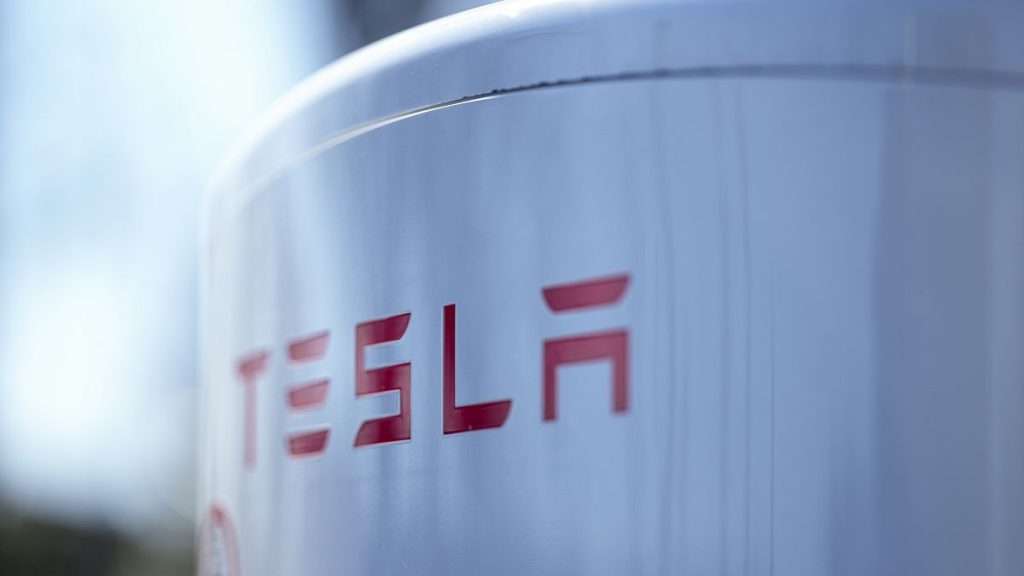The ongoing saga between Tesla and several Scandinavian trade unions continues to escalate, marked by accusations of “insane” behavior, sympathy strikes, and stalled charging station installations. The conflict, originating from Tesla’s refusal to engage in collective bargaining with its employees in Sweden, has spiraled into a multifaceted labor dispute involving multiple unions across several countries, significantly impacting Tesla’s operations and creating inconveniences for electric vehicle (EV) drivers. The core issue revolves around Tesla’s resistance to a collective bargaining agreement that would empower a labor union to negotiate on behalf of its workers, a standard practice in many parts of the world. Tesla CEO Elon Musk has publicly denounced the strike action as “insane,” highlighting the deep divide between the company and the unions.
The impact of the strike has extended beyond Tesla’s factories, affecting the rollout of its Supercharger network, a critical element of the company’s EV infrastructure. A recent incident in Malung, Sweden, brought this to the forefront, with lengthy queues forming at charging stations during a peak travel weekend. Tesla director Max de Zegher attributed the delays to “sympathy strikes” by electricians, hindering the connection of new Superchargers to the power grid. He argued that over 100 charging stalls could have been operational by winter if not for the union actions, highlighting the strategic importance of the charging infrastructure, especially during periods of high demand. This underscores the interconnected nature of labor disputes and their potential to disrupt essential services.
The Swedish trade union IF Metall, at the heart of the dispute, contends that Tesla’s refusal to negotiate a collective bargaining agreement is the root cause of the problem. Union spokesperson Simon Petersson expressed regret over the situation, emphasizing that while IF Metall recognizes the importance of expanding EV infrastructure, they cannot allow Tesla to operate outside established labor practices. He reiterated the union’s desire for a resolution, but insisted on upholding workers’ rights and fair labor practices. This stand-off reveals the complex interplay between corporate interests, worker rights, and the broader societal impact of rapidly expanding technologies like EVs.
The ripples of this labor dispute have extended beyond Sweden’s borders, engulfing other Scandinavian countries, including Norway, Denmark, and Finland, where unions have joined in sympathy strikes. These actions have taken various forms, from dockworkers blocking the delivery of Tesla vehicles to postal workers delaying the delivery of license plates to new Tesla owners. The multinational nature of the strike demonstrates the solidarity among unions and their willingness to exert pressure on Tesla across its operational footprint. This tactic of applying pressure across multiple points in the supply and distribution chain aims to amplify the impact of the strike and compel Tesla to reconsider its stance on collective bargaining.
The dispute has also spilled into legal territory, with Tesla seeking a court order to compel the Swedish Transport Agency to provide an alternative method for delivering license plates to customers, further complicating the already tangled web of legal and labor relations. This move underscores Tesla’s determination to circumvent the union action and maintain its operational momentum. However, it also highlights the potential for escalating legal battles and protracted negotiations, which could further prolong the dispute and increase its overall cost.
Despite the ongoing conflict and the challenges in expanding its Supercharger network in Sweden, Tesla maintains its commitment to the Scandinavian market, pledging to continue investment in new charging stations. This strategic decision signifies the company’s long-term vision for the region and its recognition of the growing demand for EV infrastructure. However, the ongoing labor dispute casts a shadow over these expansion plans, posing a significant obstacle to Tesla’s ambitions in the region and highlighting the complex interplay of labor relations, technological advancements, and market competition in the burgeoning EV sector. The resolution of this conflict will likely shape the future landscape of labor relations within the EV industry and influence the pace of EV adoption across Scandinavia.














